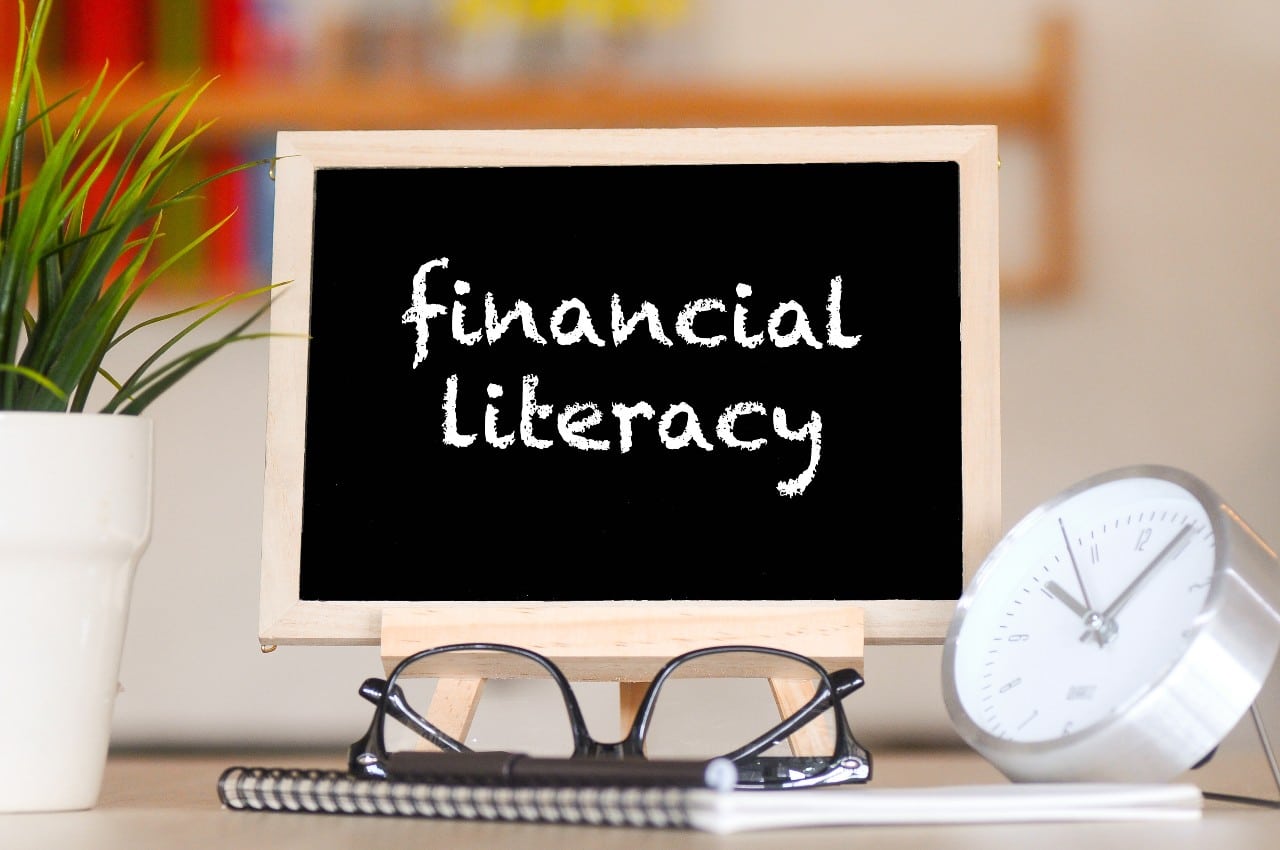What is Financial Literacy Month?
Every November, we celebrate Financial Literacy Month (FLM) in Canada! It is led by the Financial Consumer Agency of Canada (FCAC). They are a federal government agency that ensures banks and other financial companies follow the rules and treat consumers fairly. They also help Canadians better understand their money through financial education. A big part of how they do that is with Financial Literacy Month!
The goal of FLM is to help Canadians become more financially literate. What topics will you work to better understand this year? Retirement planning and investing, money management, or maybe credit awareness?
What’s unique about FLM this year?
This year, the theme is “Talk Money,” which I love because money is a topic that is often avoided. FLM 2025 is calling on people to break through social taboos and be more open about their money stories, wins, and struggles. When we start making conversations about money part of everyday lives, everyone wins. It can help folks to build confidence, better understand different financial topics, and feel more comfortable asking for help. More discussions about money lead to more knowledge, resulting in better financial decisions. An even bigger impact of slashing the stigma around money conversations is that it helps people know they aren’t alone.
How can you get involved with FLM?
The FCAC has put together two interactive social media challenges to help inspire real money conversations.
The $15 Stretch Challenge:
- The goal of this challenge is to encourage Canadians to inspire others to stretch their dollars.
- This challenge invites participants to share how they were able to make $15 stretch. So if you’ve got a low-cost recipe, date idea, or major thrifting deal, this challenge is for you!
- Share how you stretched $15 (or any other amount) on social media using hashtags #FLM2025 and #TalkMoney throughout November.
LinkedIn Challenge:
- This challenge is asking you to share either a top budgeting tip that’s been impactful for you or a piece of financial advice that has helped you make changes to better understand your money.
- Use the same hashtags shared above to help people find and track the posts.
Why Financial Literacy Month is important
Here are a few stats from the Canadians’ financial well‑being that paint a picture of where we stand financially. They highlight the need for a month dedicated to increasing financial literacy and decreasing the stigma around money conversations.
- 53% of households had a budget. The good news is that this is up from 50% in 2019. But it has been trending down since hitting 56% in 2021.
- 54% of households reported struggling with their financial commitments (up from 38% in 2019).
- 39% of Canadians reported that their debt increased, down from 51% in 2023, which is a positive trend.
- 27% of individuals reported that their spending exceeds their income. This is up from 17% in 2019.
- 52% of Canadians used savings to cover expenses, an increase from 34% in 2020.
Important financial literacy concepts
Ready to increase your financial literacy? Here are a few essentials to dive into:
Credit score, credit report
What lenders see when you apply for a credit card, line of credit, mortgage, or any other type of credit. Your report shows details about your loans and any bills that are being reported to the credit bureaus. Your score is impacted by different factors that are linked to how well you are managing your debts.
Credit card interest rates
What you pay if you don’t pay your credit card balance in full each month by the statement due date. While debt can be scary, it’s important to know what your interest rates are.
Compound interest
It can hurt you or help you. If you are on a path to save money, compound interest can grow your savings faster because you earn interest on previous interest earned. On the other hand, when you’re paying interest on debts, it makes it more challenging to pay your debts off.
Savings account vs chequing account
Different accounts, different uses, different fee structures. Chequing accounts are typically for day-to-day use and paying bills. Savings accounts can be for your emergency savings or other short-term savings goals.
When looking for a new account, be sure to review the fees. They can vary significantly between accounts and financial institutions.
Budgeting
Many think that budgets are restrictive, but I encourage you to view them as plans that show where you want your money to go.
Partnering a budget with automations and systems can help you improve your overall financial management.
Take action to improve your finances this month!
Here are a few actions you can try today:
- Pull your credit report and review it to check for any errors. If you see anything that doesn’t belong, you can dispute it to get it fixed. Note: There are options to review your credit report for free.
- Review your credit card interest rates and see if you can get them lowered. If you’ve been a good-standing customer for a while, most credit card companies are willing to lower your interest rates if you call.
- Start (or beef up) your emergency fund. Setting up an automatic transfer to move even a small amount to a savings account will add up over time.
- Set one financial goal (short-term or long-term). Write it down. Then track it regularly. If your goal is long-term (5+ years out), consider connecting with a financial advisor to review your savings options.
- Review the interest you are earning on any savings accounts. Sometimes, accounts that say they are high-interest aren’t very high at all. Watch out for promotional rates that expire after a few months.
- Listen to our Money Journeys Podcast!
- Start talking! Work to proactively start money conversations with friends and loved ones. Share what’s working, and what’s not. You’ll learn and you’ll feel less isolated. Remember, money matters, and it’s okay to talk about it.
- Bonus: Start including the youth in your life in your money conversations. Starting to teach our youth about financial literacy has a big impact! Maybe it will help them avoid or rely less on student loans.
Why FLM needs you!
Financial literacy isn’t just nerdy personal finance stuff; it helps with better decision-making. When more people improve their financial literacy skills, society wins. By starting regular money conversations, YOU can directly impact those around you.










